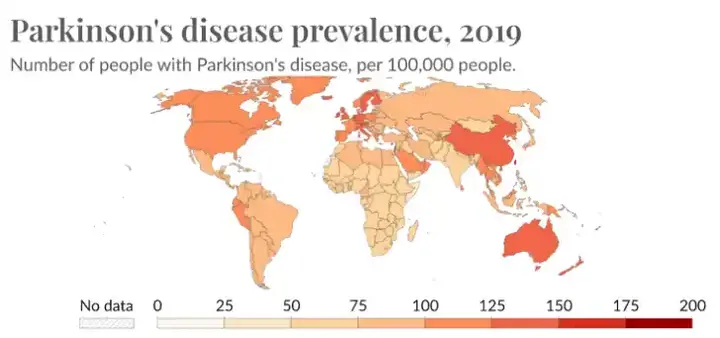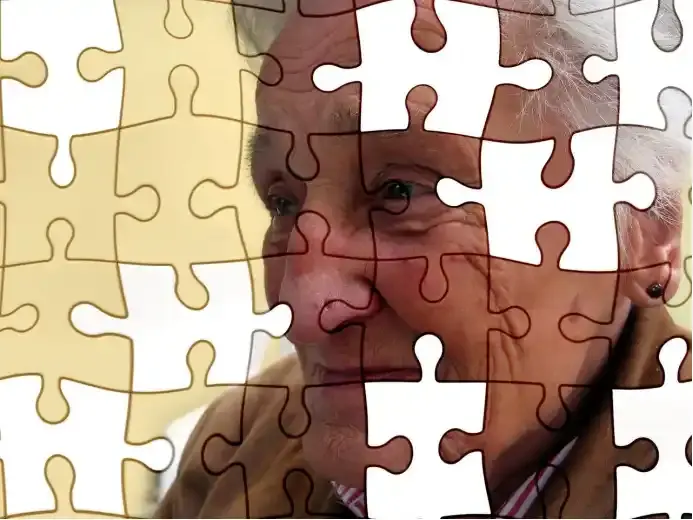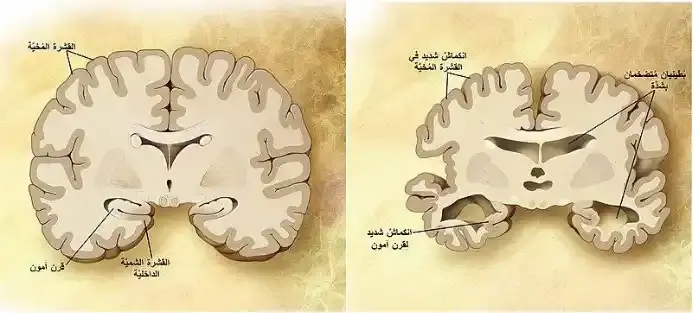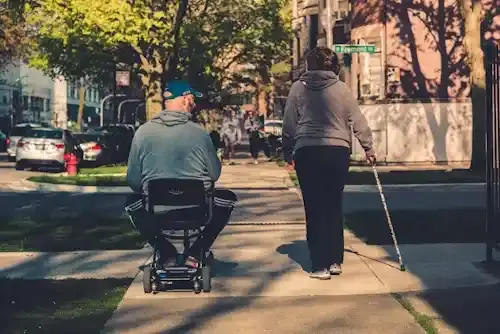Alzheimer's and Parkinson's: what are the similarities and differences?
Alzheimer's disease and Parkinson's disease are neurological conditions caused by neurodegeneration (progressive damage to brain cells). Like other progressive brain diseases, they are associated with the accumulation of certain proteins in it. In this article, we show the symptoms of each, the different and similar cognitive (thinking ability) and behavioral changes, and the treatment methods used.
Show key points
- Alzheimer's and Parkinson's are progressive neurological disorders resulting from the gradual degeneration of brain cells.
- Parkinson's disease primarily affects motor functions, presenting symptoms such as tremors, stiffness, and slowed movement, with possible cognitive decline in later stages.
- Alzheimer's disease mainly involves cognitive deterioration, including memory loss, confusion, and behavioral changes, typically emerging after age seventy.
- ADVERTISEMENT
- Both conditions progress through distinct stages, with Parkinson’s marked by increasing motor impairment and Alzheimer’s by worsening cognitive and functional decline.
- Treatments for both diseases aim to manage symptoms rather than cure the conditions, including medications, physical therapy, and, in Parkinson’s case, surgical options like deep brain stimulation.
- While both diseases can lead to dementia, Alzheimer's-related dementia tends to be more consistently debilitating, whereas Parkinson’s-related dementia may fluctuate.
- Managing life with either disease requires comprehensive support, including medical care, therapy, and caregiver assistance to maintain quality of life.
Parkinson 's:

It is a movement disorder characterized by resting tremors, instability in balance, and slow and stiff movement. In the later stages of the disease, the patient can develop dementia. Parkinson's disease usually begins after the age of sixty and progresses gradually over the years. But it can start as early, starting in your thirties or forties.
Recommend
Symptoms of the disease: Symptoms of Parkinson's disease fluctuate throughout the day, with a noticeable general deterioration over time. The most common symptoms include:
Trembling at rest, usually in the arms, legs or jaw.
A slow and intermittent way to walk.
Balance problems.
Slow speech.
Stiffness of the movements of the arms and legs.
Expressive face.
Dry skin.
Decreased emotions or increased emotional expressions (such as frequent crying).
Depression.
Constipation.
Cognitive impairment.
Dementia.
Hallucinations.
Stages of the disease: There are well-defined stages of Parkinson's disease, including:
Stage 1: Mild symptoms, usually affecting one side of the body.
Stage 2: Worsening symptoms, affecting both sides of the body, in which daily tasks can become slow or difficult.
Stage 3: Symptoms can interfere with daily life; falls may occur.
Stage 4: Severe symptoms, requiring a treadmill.
Stage 5: Inability to walk, or complete dependence on a wheelchair, and cognitive effects can be significant.
Most people with Parkinson's disease have these stages, but the progression of the disease may vary from person to person and may remain at an early stage for many years.
Treatment of the disease:
Many effective treatments can control the symptoms of the disease, even in its later stages. But there are no proven treatments to prevent its development. Common treatments include:
Parkinson's medications: These drugs affect the activity of neurotransmitters in the brain to relieve symptoms. Symptomatic treatments: These medications don't cure the disease itself, but they may allow some symptoms to be controlled.For example, your doctor may prescribe treatment for constipation or depression.
Deep brain stimulation: It is a surgery in which a device is implanted in the brain that generates electrical signals that help control motor symptoms.
Physical therapy: aims to improve movement control, so that the patient can avoid falls, and do the things he wants to do.
Alzheimer's disease:

It is a condition characterized by impaired memory, thinking, behavior and self-care. It often begins after the age of seventy, but can begin earlier. Alzheimer's disease is not associated with symptoms that affect physical movement.
Symptoms of the disease: The effects of Alzheimer's disease worsen over time. Symptoms are most pronounced when a person is tired or has another illness or infection. Common symptoms of the disease are:
Difficulty remembering things.
Difficulty concentrating.
Difficulty solving problems.
Straggling.
Changes in appetite.
Paranoia and distrust of others.
Excessive sleep.
Emotion.
Lack of attention to self-care.
Depression.
Sometimes these symptoms are related to each other; for example, forgetting where something is can lead the patient to believe that it has been stolen, exacerbating paranoia.
Stages of the disease: Stages of Alzheimer's disease can develop quickly or slowly. Sometimes the disease may seem to slow down, then it can worsen quickly. The seven stages of Alzheimer's disease are:
Stage 1: Before the onset of symptoms.
Stage 2: Mild forgetfulness.
Stage 3: Increased forgetfulness.
Stage 4: Forgetting and difficulty in making a decision.
Stage 5: Severe impairment in self-care and interaction with others.
Stage 6: Personality changes and lack of independence.
Stage 7: Inability to eat, lack of movement.
People with advanced stages can become very passive, often losing interest in eating. Nutrition, bedsores and infections can become serious problems. During advanced stages, irritability also becomes a problem, and people may resist medical care, including medical procedures such as intravenous lines or feeding tubes.
Treatment of the disease: There are many medical treatments that can be prescribed for Alzheimer's disease. These treatments may help slow the progression of the disease in some people, but they don't treat the symptoms and don't reflect any effects of the disease. Medications approved to treat Alzheimer's disease include memantin, donepezil, galantamine, rifastigmine and lycanmab. In addition, symptomatic treatments may be prescribed to mitigate some of the effects of the disease, such as depression or irritability.
Which is worse?

There is no simple answer. Dementia associated with Alzheimer's disease is somewhat similar to dementia associated with Parkinson's disease. But Alzheimer's disease causes dementia slowly and does not go away, while Parkinson's disease-related dementia progresses faster and more dramatically, but its symptoms can appear and disappear from day to day.
Also similar symptoms are: anxiety, depression, sleep disturbances in the early stages. In the later stages, both diseases may lead to delusions, hallucinations and other psychotic symptoms.
Alzheimer's dementia usually has more severe effects on a person's life than Parkinson's disease, and people with Alzheimer's disease usually lose independence and need more care than people with Parkinson's disease. But Parkinson's disease can be severe, and movement and balance problems can lead to life-threatening falls.
Living with Alzheimer's and Parkinson's disease:
Living with these two diseases is very difficult. Dementia associated with Alzheimer's disease, with the motor effects of Parkinson's disease (and possibly Parkinson's dementia) can make self-care very difficult.
If you or a loved one has been diagnosed with one of these two diseases, it is important that you use all the resources available to you: social work, home health care, physical therapy, and a dietitian, to have the best possible quality of life.
You may need to seek professional support to help you care for a loved one, and get some rest and self-care.

Alzheimer's disease and Parkinson's disease are progressive brain diseases caused by progressive damage to brain cells. Each has its own set of symptoms, stages and treatments. Dementia is always seen in Alzheimer's disease, while Parkinson's disease is a movement disorder that can lead to dementia. It is possible to develop both diseases at the same time, but they are not necessarily related, and there is no genotype, they can occur without any family history.








